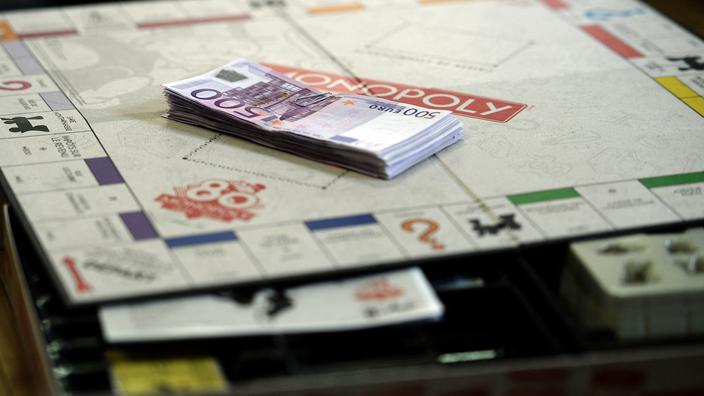More than 80 years after its creation, Monopoly is accused by an American journalist of perpetuating racist clichés inherited from the segregation of blacks in America between the wars.
In an article published this Sunday on The Atlantic, Mary Pilon recalls that the city of Atlantic City, whose first edition of Monopoly borrowed the street names to form the original board of the famous real estate transaction game, was structured in the 1930s around a logic of racial segregation: clearly, the poor neighborhoods were reserved for blacks, and the rich, for whites.
So the city's coastal promenade, Boardwalk, which on the game's initial board corresponds to our rue de la Paix (the most expensive street on the board) was, for example, forbidden to blacks.
"
We are only too rarely interested in the cultural representations conveyed by board games
," writes the journalist, also author of a book published in 2015 on the inventors of the world-famous game,
The Monopolists
.
"
Yet they often reflect social structures that many Americans, especially those who have benefited from them, do not even think to question, or hierarchies that the years have come to pass for normal,
" she continues, denouncing the insidious way in which the plateau of Monopoly trivializes, according to her, the existence of separate social castes within the city.
To read also: "Cancel culture", "woke": when the American left goes mad
This new controversy is reminiscent of the prosperity in the United States of "
cancel culture
", this phenomenon of dismissal of works and personalities who have participated directly or indirectly in the injustices done to blacks in American history. .
Ironically, it also occurs at the same time when a Croatian chess player, Antonio Radic, had a curious mishap on YouTube: the platform's artificial intelligence indeed blocked his channel for 24 hours, because of too much use of the words “
white
” and “
black
” in the comments - which of course did not mean anything other than the color of the squares and pawns.
Ever more numerous controversies
In reality, this is not the first time that the world of board games has found itself confronted with controversies over the supposed presence of racist clichés in certain game boards. For example, the Mysteries of Beijing, a famous game of detectives marketed since the end of the 80s, and to whom the puns on the consonance of Asian names as well as the rides in rickshaws have been worth much controversy.
“
Besides the particularly cliché atmosphere, the characters all had names au gratin: Ping Pong, Miss Fong-D'Ting, Mr. Tchin-Tchin, Mr. Houson-Métong… Anti-Asian racism has nevertheless a strong anchoring in France
”wrote a contributor to the Topito site a few days ago.
On the online media
Apocalypse
, an author did not hesitate to see in it a concentrate of
“racist humor of the 80s”
.
In 2019 again, the Amazon platform was asked by an Australian Jewish association to withdraw from sale the "
Secret Hitler
", a game based on the model of the werewolf, and during which the democrats and the fascists clash to take control of the country's policies.
Finally in the
New York Times
, journalist Kevin Draper even clearly asked himself the question: "
Can board games make us play the role of racists, slavers or Nazis?"
The author recalls in particular the case of a strategy game withdrawn only two months after its marketing, called Scramble for Africa, in reference to the "rush for Africa" at the end of the 19th century during which the great imperial powers of the time had entered into competition for the colonial partition of the continent.
“
At the heart of this debate were new and provocative questions about who designs games, who plays them, if games are art, what points of view are represented and what responsibility games have towards historical verisimilitude
”notes the journalist, drawing a parallel with the similar debates that shake the world of culture, from literature to music, including theater and cinema.
And to review other board games, such as Manitoba or King Pillip's War, featuring historical events linked to colonization or to wars between Europeans and Amerindians.
John Poniske, a teacher who participated in the design of one of these games, then pleaded by recalling the importance that board games play in the construction of historical landmarks for young people. Warning against a Manichean vision of the world of board games, he felt that the staging of a historical event should not be considered offensive but as a fun way to discover the history of the continents. In reality, this is the whole question posed by these repeated polemics: to be compatible with the moral standards of the time, should board games now avoid any reference to periods marked by colonization? slavery or segregation? At that point, we would have to remove many of them from the cupboards of our playrooms.

